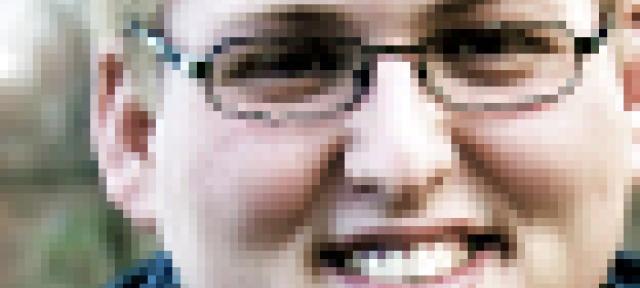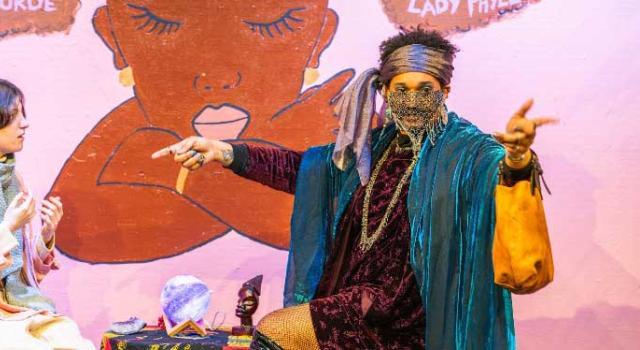Student Project Creating Smartphone Software to Monitor Blood Sugar

Dillon Compton 06F Hampshire Division III (senior) project: creating a software application that will allow people with diabetes to use smartphones to monitor their blood sugar.
Dillon Compton 06F gets a lot of use out of his smartphone. "That's how I read most of my news, that's how I check Facebook, and do all of my computing," he says.
So, he asked: "I'm carrying around all of this technology; why can't I also get my personal information, monitor my physical state, my health?"
That question led to Compton's Hampshire Division III (senior) project: creating a software application that will allow people with diabetes to use smartphones to monitor their blood sugar.
"There's a lot of hardware on glucose readers—the screen, a lot of the computing technology—that everybody who's carrying around a smartphone already has," he explains. "And that's the expensive part. The cheap part is the part that actually takes the glucose."
Cost is a major concern when it comes to typical glucose readers, especially because of dependence on health insurance. "They make meters that are fancier that aren't always covered," Compton explains. "Or, when one breaks, your insurance might not pay for another one yet." If a person already owns a smartphone, the cost of monitoring equipment can be greatly reduced. "We can get this down to fifteen dollars," he says.
Cost isn't the only benefit of a glucose-reading smartphone. Compton is creating the application with a lot of thought about his younger sister, a high-level high school athlete with diabetes who finds using a computer to record and manage her blood sugar inconvenient and time-consuming. "She'll have highs and lows and not really know why," he says. The smartphone application will be "a tool that would make it very easy for people who may know enough to manage their diabetes, but can't be putting in an hour or two a day."
Users of the application will be able to record information about their daily lives; for example, what they ate and how much they have slept or exercised. "The number of factors that affect blood sugar is huge," says Compton. But with the information provided by a user, combined with glucose readings, the program will be able to identify trends.
Access to knowledge of those trends straight from the meter, combined with a user's ability to call a doctor or search the internet for additional information with the same gadget, "make it a one-stop shop," Compton says.
Although Compton's Div III is mainly writing the software, he has bigger plans for the project in the future. "I want to create the hardware and I want to create the software, and I want to leave the code accessible to others... I want this to be something that grows and is as useful to as many people as possible," he says.
In spring 2009, Compton took a course called Social Entrepreneurship, taught by Colin Twitchell 78F, director of the Lemelson Center at Hampshire. Compton says Twitchell, who has started five businesses himself and been directly involved with more than a dozen starter companies, "got me interested in how you could do technology startups that were serving a greater good."
As part of his Div III, Compton is writing a business plan for a small technology start-up company that will adhere to those ideals. It will join the ranks of similar companies that, he says, have "already penetrated the corporate world, but not to the extent that I think they should. "
Compton already had a job lined up after graduating on May 22, 2010. As a software engineer for QuickBooks, Intuit's line of small business financial software, he'll be in Silicon Valley, he says, "writing code, doing product design."
Compton's Div III faculty committee: computer science professor Lee Spector and Lemelson Center director Colin Twitchell (co-chairs).



